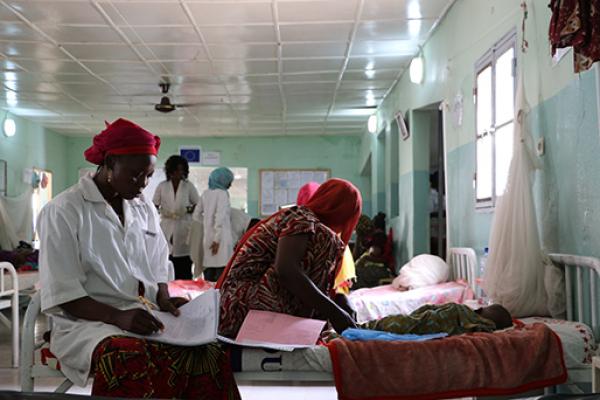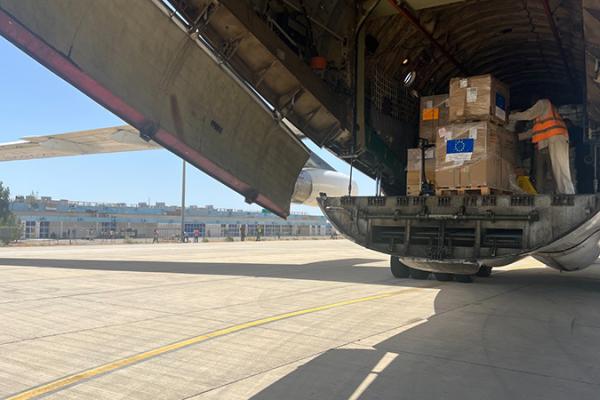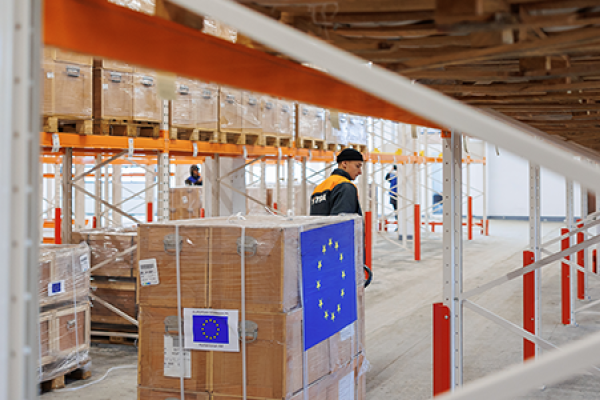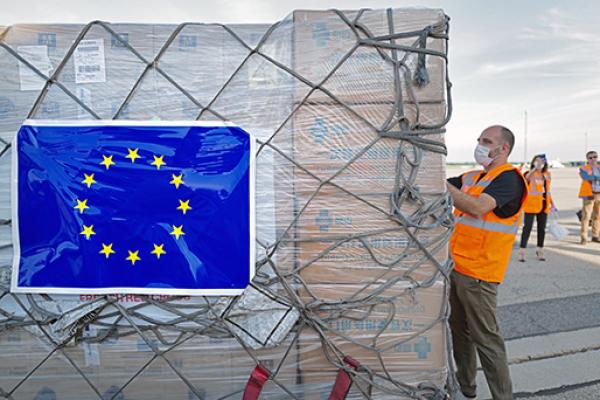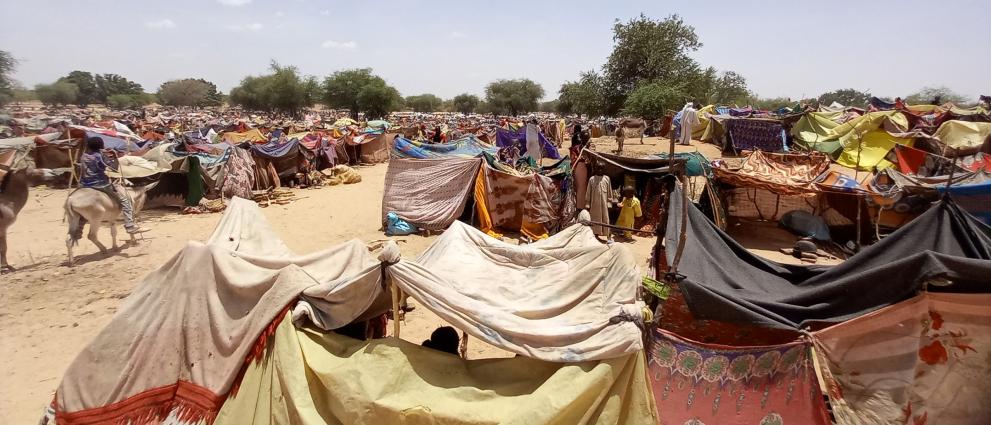
The European Union has allocated additional €10 million in humanitarian aid to Chad, to help the country cope with the needs of the large number of people fleeing from the conflict in neighbouring Sudan.
This new funding comes on top of the €7 million in humanitarian aid already pledged for actions in Chad at the high-level event held in Geneva last month, in response to the crisis in Sudan. The funding will be used to respond to the most urgent needs of refugee populations living in extremely precarious situations, most of them women and children, including many pregnant and lactating women.
Commissioner for Crisis Management, Janez Lenarčič, made the announcement during a call with the President of the Transition S.E. M. Mahamat Idriss Déby Itno.
The total funding mobilised for interventions in Chad since the beginning of the crisis in Sudan amounts now to more than €18.6 million. This is in addition to the €30.5 million mobilised so far in 2023, in favour of the most vulnerable people in other provinces of Chad.
Further support from the EHRC
Additionally, a new flight of the EU Humanitarian Air Bridge (HAB) to N’Djamena has departed today. This flight, the third since the launch of the HAB at the end of May, is carrying nearly 90 tonnes of supplies for different humanitarian partners.
Out of the total cargo, 52 tonnes are donated by the EU from its pre-positioned stockpile in Brindisi, which will be delivered to humanitarian partners.
This Humanitarian Air Bridge is organised in the framework of the European Humanitarian Response Capacity (EHRC), which aims at filling gaps in the humanitarian response to natural and human-made disasters.
The previous two flights delivered around 180 tonnes of essential supplies for several partners, including medicines, shelter, water and sanitation equipment, school supplies and other non-food items.
Through the EHRC, the EU is also supporting several actions to facilitate the delivery of aid in the east of Chad.
The EU is supporting the creation of a logistic hub in the town of Adré, close to the Sudanese border and which is one of the main entry points for people fleeing Sudan. There, together with local authorities, the EU has launched works to rehabilitate an airstrip, which will allow the arrival of small planes transporting humanitarian staff and cargo, as well as medical evacuations.
Furthermore, in partnership with the World Food Programme, the EU will support the temporary deployment of a deep-field helicopter in the eastern regions, which will provide access to hard-to-reach areas for humanitarian organisations.
Commissioner for Crisis Management, Janez Lenarčič, said: “The conflict in Sudan, which sadly has not abated after three months of fighting, is having an increasingly worrying impact in neighbouring Chad. The Chadian people have shown remarkable solidarity with those seeking shelter within their borders, and the EU remains fully committed to supporting Chad in response to this crisis. The EU is mobilising all its available resources, both from a financial and a logistic point of view, to bring help to the populations most in need.”
Background
Since fighting started in Sudan, at least 260,000 people have escaped towards Chad, the vast majority women and children. New people are crossing the border every day.
Such a sudden influx has highly strained the response capacity of humanitarian partners in the country, one of the less developed in the world and where previous humanitarian needs were already high. Before the current conflict in Sudan, Chad already hosted one of the largest refugee populations in the region, with nearly 600,000 people. Around 400,000 of those were from Sudan, while the rest came from Nigeria, Cameroon and Central African Republic.
For 2023, the EU has already allocated €30.5 million to respond to humanitarian needs in other parts of Chad, as part of its humanitarian aid in West and Central Africa. The region continues to face a protracted crisis driven by conflict and worsened by other factors, such as climate change and the global spike in food prices.
Details
- Publication date
- 21 July 2023
- Author
- Directorate-General for European Civil Protection and Humanitarian Aid Operations (ECHO)

